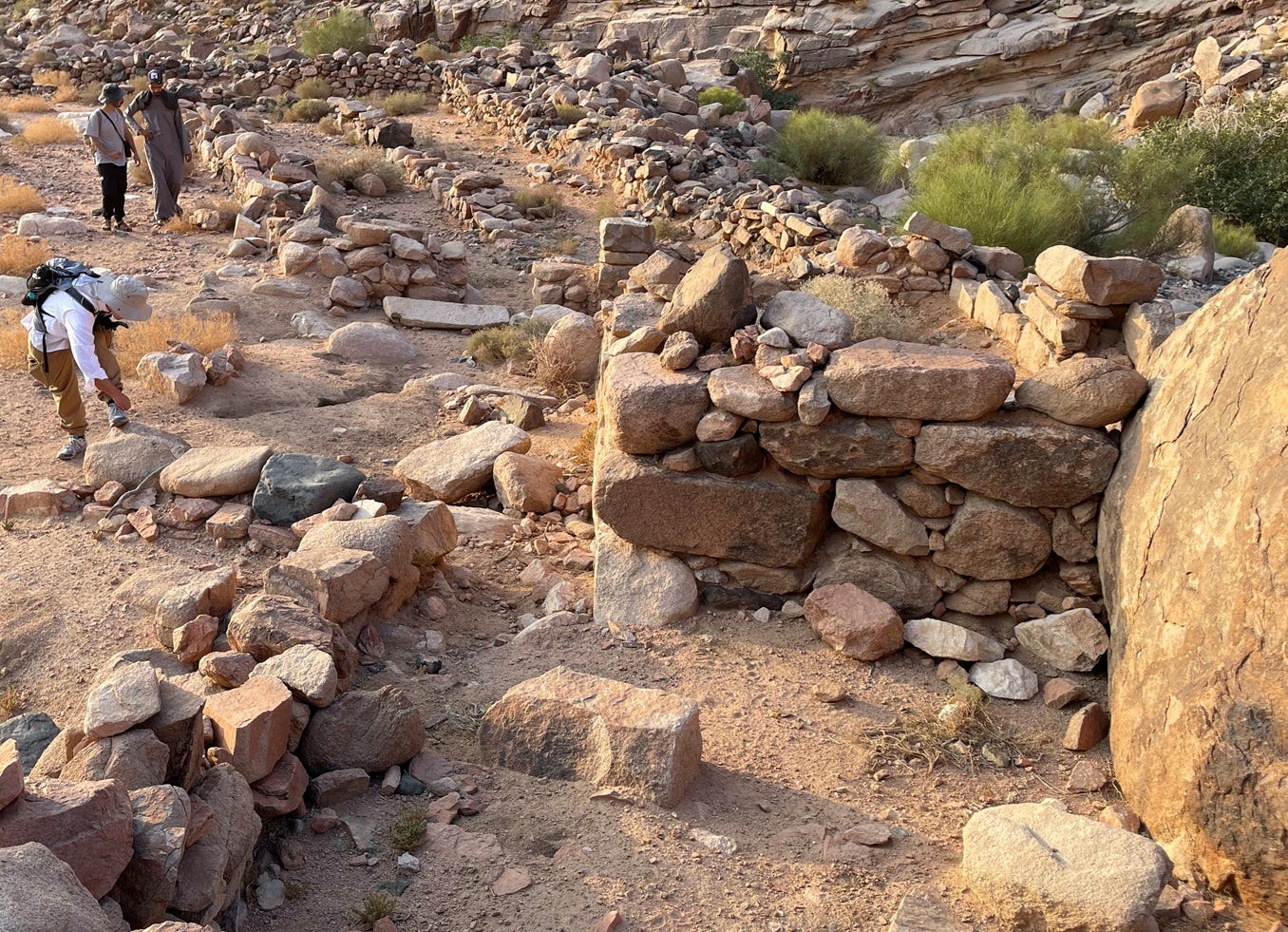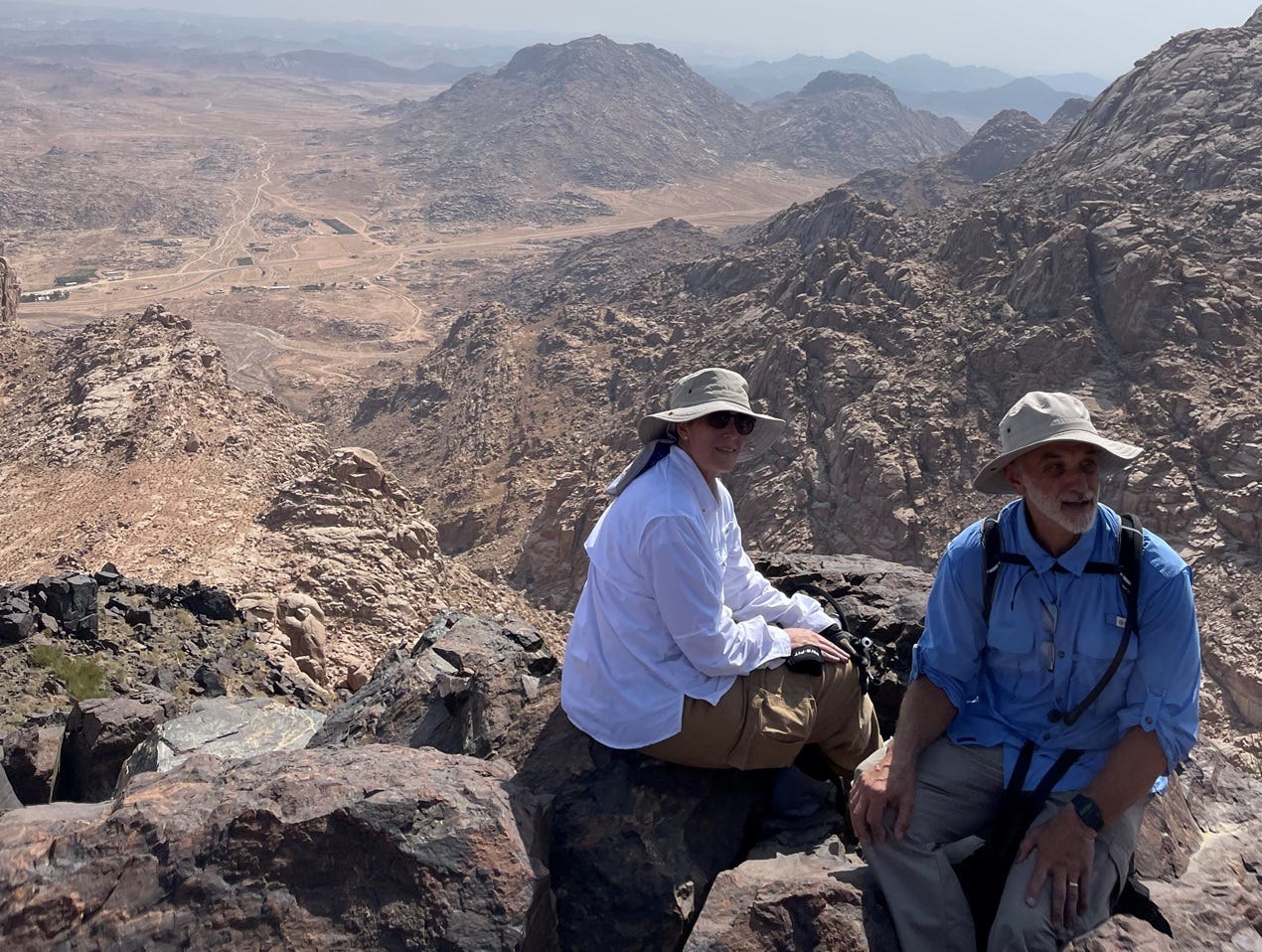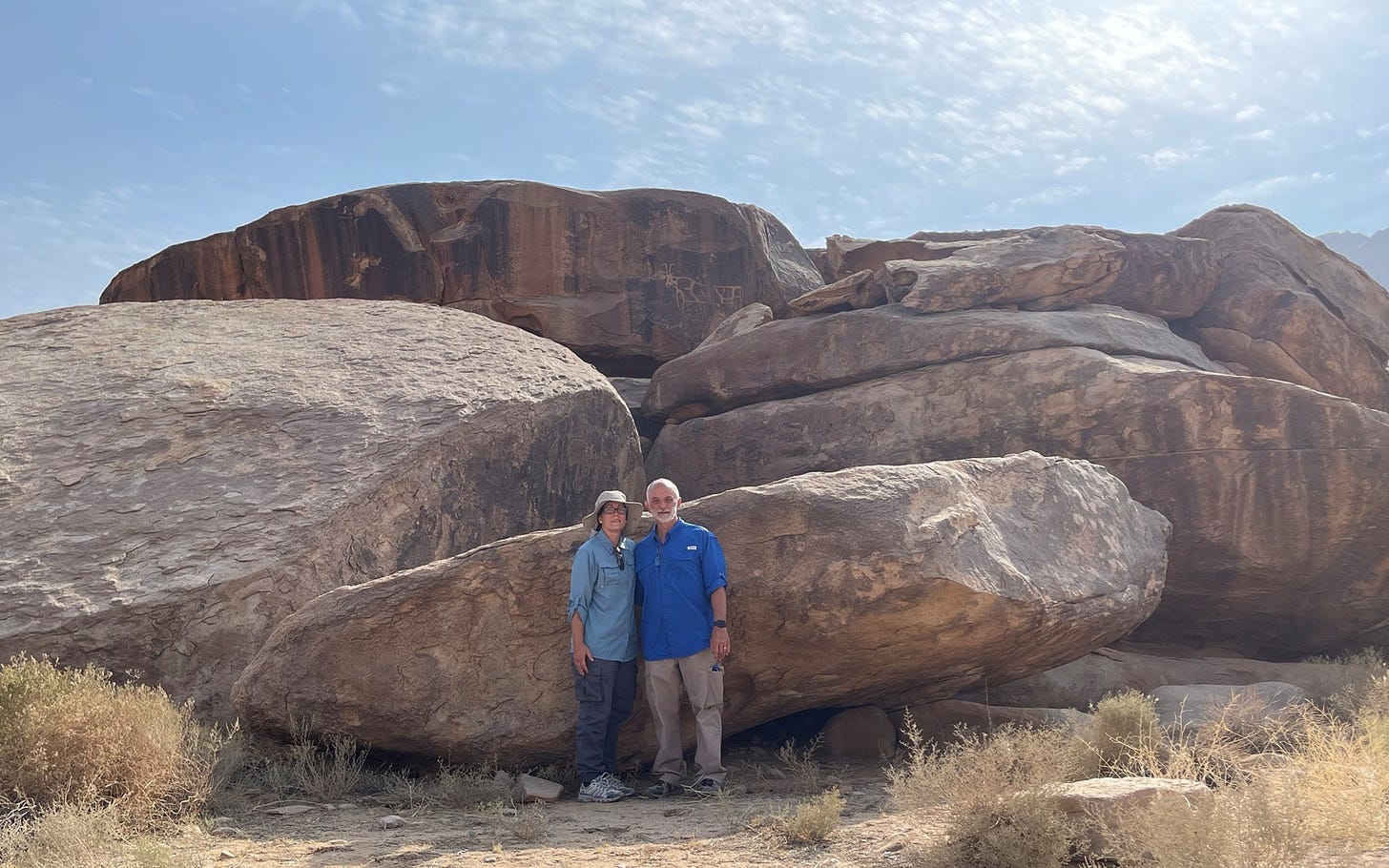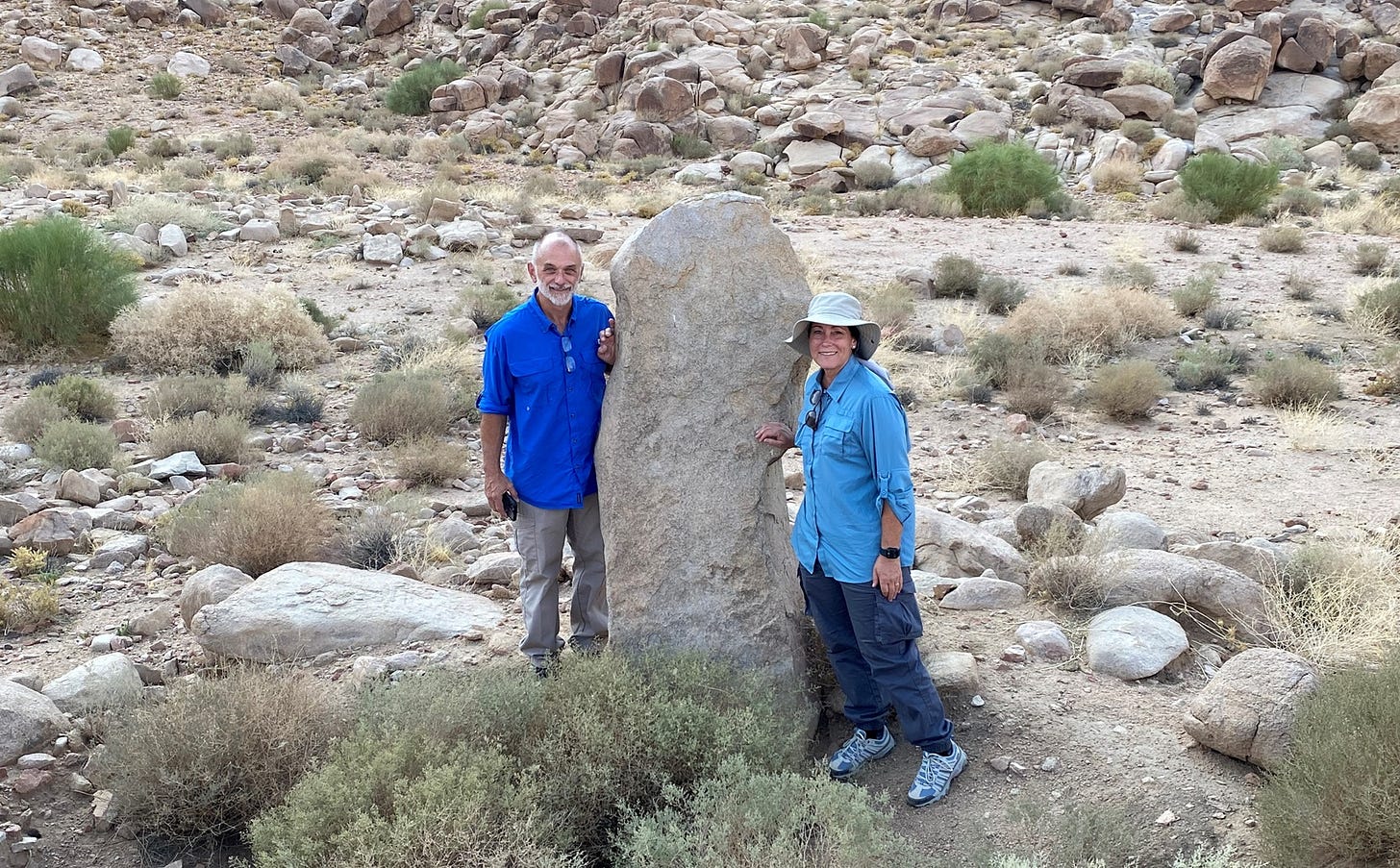Have you considered this: The Ten Commandments?
You Keep Using That Word, I Do Not Think It Means What You Think It Means

If I were to ask someone familiar with the Bible where would I find the Ten Commandments they would probably point me to Exodus 20:2-17. Someone may also point me to the retelling in Deuteronomy 5:7-21. In either place, you will find the following list:
1. You shall have no other gods before me.
2. You shall not make for yourself an image in the form of anything in heaven above or on the earth beneath or in the waters below. You shall not bow down to them or worship them; for I, the Lord your God, am a jealous God, punishing the children for the sin of the parents to the third and fourth generation of those who hate me, but showing love to a thousand generations of those who love me and keep my commandments.
3. You shall not misuse the name of the Lord your God, for the Lord will not hold anyone guiltless who misuses his name.
4. Remember the Sabbath day by keeping it holy. Six days you shall labor and do all your work, but the seventh day is a sabbath to the Lord your God. On it you shall not do any work, neither you, nor your son or daughter, nor your male or female servant, nor your animals, nor any foreigner residing in your towns. For in six days the Lord made the heavens and the earth, the sea, and all that is in them, but he rested on the seventh day. Therefore the Lord blessed the Sabbath day and made it holy.
5. Honor your father and your mother, so that you may live long in the land the Lord your God is giving you.
6. You shall not murder.
7. You shall not commit adultery.
8. You shall not steal.
9. You shall not give false testimony against your neighbor.
10. You shall not covet your neighbor’s house. You shall not covet your neighbor’s wife, or his male or female servant, his ox or donkey, or anything that belongs to your neighbor.
Although the first time we see this list is in Exodus 20, the phrase Ten Commandments does not appear until Exodus 34, fourteen chapters later, and that chapter does not contain this list. Why is it that we associate the term the Ten Commandments with this list? That is the topic we will consider.
Let’s set the stage, in Exodus 19 Yehovah God calls the children of Israel to a meeting at Mt. Sinai after He had asked them to follow Him where they responded in verse 8, “We will do everything the Lord has said.” He told them to take a bath, wash their clothes, abstain from sexual relations and in three days He would come down and meet with them. They obeyed and assembled at the foot of the mountain on the morning of the third day. In Exodus 20, Yehovah God began speaking so that all of the two to three million Israelites assembled could hear what He spoke. After hearing God speak the ten commandments above, the people trembled with fear for they thought that they might die if they hear any more the voice of God. So, they went to Moses and asked him to hear the rest of what God had to say and relay that to them. Moses and Yehovah God heard their request and had a private conversation where Yehovah gave the rest of the commandments that He intended to give. This private conversation continues all the way through Exodus 23. Moses went back and spoke all of the rest of the commandments to the people and they responded in Exodus 24:3, “Everything the Lord has said we will do.” They verbally agreed to the covenant and then Moses wrote all of this down. The next morning, Moses got up, built an altar and set up twelve pillars of stone for the twelve tribes of Israel. On this altar, they offered burnt offerings to Yehovah and sacrificed young bulls as fellowship offerings. Moses took half of the blood of the bulls and splashed it on the altar and the other half he put in bowls. He then took the Book of the Covenant that he had written the night before and read it to the people. They responded, “We will do everything the Lord has said; we will obey.” (Exodus 24)
This now makes three times that they confirmed that they would do everything Yehovah has said! Moses then took the blood, sprinkled it on the people and said, “This is the blood of the covenant that the Lord has made with you in accordance with all these words” (Exodus 24:8). They had entered into a blood covenant which means that whoever breaks the covenant is to become as dead as the animal whose blood was sprinkled on them. After this, Moses and Aaron, Nadab and Abihu, and the seventy elders of Israel went up and saw the God of Israel and they had a meal with Him.
After the meal, Moses is called to go back up the mountain where Yehovah would give him, “tablets of stone with the law and commandments I have written for their instruction” (Exodus 24:12 NIV). There is a problem with the NIV translation here where it says, “with the law.” The Hebrew says, וְהַתּוֹרָה֙ (Exodus 24:12 Hebrew Text Analysis) which properly translates, “and the law Torah.” Reading this as with, could imply that the law is written on the tablets, using and would suggest that He is giving Moses tablets of stone, the law and the commandments; a list of three things. You can compare different translations here. This becomes very important later.
Then Moses entered the cloud as he went on up the mountain. And he stayed on the mountain forty days and forty nights (Exodus 24:18). During this time, Moses is given instructions on building the Tabernacle, the Ark, the Menorah, and many other things, in fact these instructions go from Exodus 25 all the way to Exodus 31.
We are now about six weeks after the Israelites had confirmed three times that they would follow Yehovah God’s instructions and entered into the blood covenant. You can read the whole story in Exodus 32 but the short version is that the Israelites got impatient waiting for Moses to return, decided to make an idol, a golden calf, which was forbidden by the second commandment that they had personally heard Yehovah God speak.
This means that they had broken the blood covenant that they had already agreed three times to keep; that didn’t take long! Yehovah God was going to make them pay the price that they had agreed to for breaking the covenant, death. But Moses sought the favor of the Lord his God. “Lord,” he said, “why should your anger burn against your people, whom you brought out of Egypt with great power and a mighty hand (Exodus 32:11)?” Moses was successful and (verse 14) “then the Lord relented and did not bring on his people the disaster he had threatened.” Just because Yehovah God relented at that time does not mean the death was not owed, after all, God is just. The morning and evening sacrifices were not part of the Torah prior to this; those sacrifices were instituted because of this event to remind the people twice daily that death was still owed. That death would eventually be paid by Yeshua when He came and died to pay this price after which the morning and evening sacrifices were eventually taken away. This is the renewed covenant in His blood! He renewed the Covenant made at Sinai, taking away the penalty, not the requirements.
After Moses convinced Yehovah God to relent from destroying the children of Israel, “Moses turned and went down the mountain. He held in his hands the two stone tablets inscribed with the terms of the covenant. They were inscribed on both sides, front and back. These tablets were God’s work; the words on them were written by God himself.” I quoted the NLT here because it says “terms of the covenant” instead of the NIV because that translation incorrectly adds “law” when that is nowhere to be found in the Hebrew text. I will posit here that up to this point, we have not read what this covenant says. We do learn here that a covenant, a contract, is written on the stone tablets, not a list of commandments, a list of dos and don’ts!
When Moses approached the camp, his anger burned and he threw the tablets down, shattering them, showing the breaking of the covenant. Moses ground the idol to powder and scattered it on the water and made the Israelites drink it. The Levites stood with Moses and at his command, went through the camp with their swords and killed about three thousand people that had participated in the debauchery. There is a graveyard not far from the mountain where those people were buried.
After this, Yehovah says that He will no longer go with them to the land He promised to Abraham, Isaac and Jacob. At these words, the people began to mourn. After their mourning and Moses’ petitioning, Yehovah relents and says that He will go with them into the Promised Land. The full story is in Exodus 33.
Now we get to Exodus 34 where Yehovah God replaces the stone tablets that Moses broke. You should read the whole chapter, but I am going to go over the important details. Moses is commanded to come alone up the mountain. This time Moses is to make two stone tablets like the first ones and bring them with Him where Yehovah “will write on them the words that were on the first tablets” (Exodus 34:1). The same words will be written on this set as were on the first set of tablets. This is important! Moses is obedient and chisels out the tablets and climbs the mountain to meet with Yehovah. Moses bowed down to the ground and worshipped. Yehovah responded that he is making a covenant, a contract, with ten clauses:
1. Before all your people I will do wonders never before done in any nation in all the world. The people you live among will see how awesome is the work that I, the Lord, will do for you. Obey what I command you today. I will drive out before you the Amorites, Canaanites, Hittites, Perizzites, Hivites and Jebusites. Be careful not to make a treaty with those who live in the land where you are going, or they will be a snare among you. Break down their altars, smash their sacred stones and cut down their Asherah poles. Do not worship any other god, for the Lord, whose name is Jealous, is a jealous God. (Exodus 34:10-14)
2. Be careful not to make a treaty with those who live in the land; for when they prostitute themselves to their gods and sacrifice to them, they will invite you and you will eat their sacrifices. And when you choose some of their daughters as wives for your sons and those daughters prostitute themselves to their gods, they will lead your sons to do the same. Do not make any idols. (Exodus 34:15-17)
3. Celebrate the Festival of Unleavened Bread. For seven days eat bread made without yeast, as I commanded you. Do this at the appointed time in the month of Aviv, for in that month you came out of Egypt. (Exodus 34:18)
4. The first offspring of every womb belongs to me, including all the firstborn males of your livestock, whether from herd or flock. Redeem the firstborn donkey with a lamb, but if you do not redeem it, break its neck. Redeem all your firstborn sons. No one is to appear before me empty-handed. (Exodus 34:19-20)
5. Six days you shall labor, but on the seventh day you shall rest; even during the plowing season and harvest you must rest. (Exodus 34:21)
6. Celebrate the Festival of Weeks with the firstfruits of the wheat harvest, and the Festival of Ingathering at the turn of the year. (Exodus 34:22)
7. Three times a year all your men are to appear before the Sovereign Lord, the God of Israel. I will drive out nations before you and enlarge your territory, and no one will covet your land when you go up three times each year to appear before the Lord your God. (Exodus 34:23-24)
8. Do not offer the blood of a sacrifice to me along with anything containing yeast, and do not let any of the sacrifice from the Passover Festival remain until morning. (Exodus 34:25)
9. Bring the best of the firstfruits of your soil to the house of the Lord your God. (Exodus 34:26)
10. Do not cook a young goat in its mother’s milk. (Exodus 34:26)
Then the Lord said to Moses, “Write down these words, for in accordance with these words I have made a covenant with you and with Israel.” Moses was there with the Lord forty days and forty nights without eating bread or drinking water. And he wrote on the tablets the words of the covenant—the Ten Commandments. (Exodus 34:27-28) Ah, there is the first time the phrase Ten Commandments appears in your English Bible.
Moses was told to write “these words.” Yehovah says that He made a covenant with Moses and Israel according to “these words.” The context is this trip up the mountain. These words are the words of Exodus 34:10-26. Yehovah says that He wrote this covenant on the tablets!
What about the phrase “Ten Commandments?” In the Hebrew text it is הַדְּבָרִֽים עֲשֶׂ֖רֶת. The first word עֲשֶׂ֖רֶת is aseret, meaning ten. The second word הַדְּבָרִֽים is hadebarim. Ha is the direct object the and debarim is the plural of debar which can mean thing, matter, word (this is the same root word above in “these words”), or commandment, as well as some other things. This isn’t a list of commandments, it is a list of clauses in a contract, a covenant. These clauses are matters. This would better be translated “Ten Matters.”
In Exodus 20, there is just a list of commandments. In Exodus 34, there is a list of clauses with rights and responsibilities of each party. Yehovah says that if they obey, He will drive out their enemies. He has responsibilities. He says that if they go up three times per year to the Feasts, that He will protect their land from their enemies. This is important because the men, the army, are commanded to go to the Feast leaving the land unguarded. Yehovah commits to guard their land if they obey. Another responsibility that He has.
Deuteronomy 4:12-13 also has the phrase Ten Commandments. “Then the Lord spoke to you out of the fire. You heard the sound of words but saw no form; there was only a voice. He declared to you his covenant, the Ten Commandments, which he commanded you to follow and then wrote them on two stone tablets.” This could be interpreted to think that the Exodus 20 list is what is written on the tablets. Two issues with that. First, it contradicts Yehovah’s own words in Exodus 34:27-28 which would make God a liar. That can’t be it. Second, Deuteronomy is written about 40 years after Exodus 34, just before the Israelites are going to enter the Promised Land. The reason that they had been wandering for 40 years was because of the bad report of those sent to spy out the land in Numbers 13. In Numbers 14, Yehovah commanded that all of the fighting age men at that time, except Joshua and Caleb, would not enter the promised land, that they would all die before the forty years they were sentenced to wander expired. Deuteronomy was written when most of the people that heard the voice of God at Mt. Siani had perished. The ones that had heard it were just children at the time. Many, possibly most, that were about to enter the Promised Land were born after the events of Exodus 20. He was reminding them of that time forty years prior that scared them so bad they thought they would die; they would remember that! Above it says, “He declared to you his covenant.” After the first ten commandments were shouted down, everything was declared to them through Moses, as was the covenant in Exodus 34 written on two stone tablets.
Deuteronomy 10:4 is the third place we find the phrase Ten Commandments. Deuteronomy 10:1-5 reads, “At that time the Lord said to me, ‘Chisel out two stone tablets like the first ones and come up to me on the mountain. Also make a wooden ark. I will write on the tablets the words that were on the first tablets, which you broke. Then you are to put them in the ark.’ So I made the ark out of acacia wood and chiseled out two stone tablets like the first ones, and I went up on the mountain with the two tablets in my hands. The Lord wrote on these tablets what he had written before, the Ten Commandments he had proclaimed to you on the mountain, out of the fire, on the day of the assembly. And the Lord gave them to me. Then I came back down the mountain and put the tablets in the ark I had made, as the Lord commanded me, and they are there now.” A lot of this is a retelling of Exodus 34. What seems contradictory is that it says, “he proclaimed to you on the mountain out of the fire on the day of the assembly.” Scripture cannot contradict itself. Again, Yehovah Himself said what is written on the tablets in Exodus 34 so I think what has to be inferred here is that everything spoken by Yehovah to the Children of Israel before they stopped Him was not written down. Exodus 20 begins, “And God spoke all these words.” What it does not say is, “God spoke ONLY these words.” I believe that it is very possible that they heard the Exodus 34 covenant prior to the first Ten Commandments of Exodus 20 being shouted down, only that part was not recorded by Moses. And, if this is true, the same argument can be used for Deuteronomy 4:12-13.
That is the only way that I can reconcile these verses. If you have a different solution to the seeming contradictions in these Deuteronomy verses, that doesn’t make Yehovah a liar in Exodus 34, please comment below. I would love to learn!
From all of this, there are no Ten Commandments as we currently understand that phrase. The only times that phrase is used is in reference to what is written on the stone tablets which would be better translated as “Ten Matters” or, maybe, “Ten Clauses.” In Exodus 20, there is an artificial break in verses 18-21. Yehovah is communicating His commandments when the people interrupt Him because they think they will die if they hear His voice any longer, so they ask Moses to be their intermediary. This break is coincidently after the first ten commandments are shouted down. If He had gotten through fifteen commandments before He was interrupted, there would be no question about the Ten Commandments. Yehovah continues in verse 22 privately with Moses. If you remove verses 18-21 in Chapter 20, the interruption, the commandments go on uninterrupted from chapter 20 through chapter 23, four full chapters. If we wish to ascribe a name to the Exodus 20 list, that name should be The First Ten Commandments, though that is nowhere in the Bible.
Deuteronomy 10:5 tells us that the tablets are in the Ark. Where is the Ark now? The book of 2 Maccabees tells us that Jeremiah hid the Ark and the Tabernacle of David. They are still in Jerusalem and will be revealed in the last days. We will soon see the Ark and be able to read the very text that Yehovah Himself wrote on the tablets that Moses carved out. I can’t wait to see all of these things!!
New here? Consider reading the introduction here.
If you found this interesting or thought provoking, please consider subscribing, liking and sharing it. You may also join the conversation in the comment section below.








Shoot! Wish I had known! You will have to attend next year!
Looks great! So glad for these GORGEOUS pictures, and of course as you might have heard, I was not allowed to climb per Rhonda's concerns (age discrimination). I'll look forward to having time (who knows when?) to explore what's here. Check out my facebook page - I just posted a short video from the TrutherCon Conference I attended just two weeks ago in Dallas. Wonderful tribe!